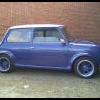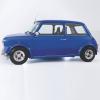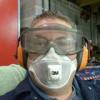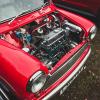Everyone drives in a different manner, be it on road or track. So the engine characteristics to suit an individual will be different for different drivers.
Some drivers love good mid-range torque and value it over sheer top-end power, so they will choose a mild cam.
It is not the cam choice which determines the rate at which a car can be driven down a road, it's how well the driver used the available torque & power to carry the speed smoothly through the corners.
I come from a serious rallying background and the successful drivers were not necessarily in the most powerful cars. Success was from driving very smoothly, carrying the speed through the corners and having the car set up to give best road-holding combined with superb handling. If you can exit a corner 5 mph faster, then you will carry that speed up to the next corner where your better brakes and car balance will enable later braking and, again, faster speed through the corner.
I used to tell people who wanted to modify their cars to start with the suspension & brakes, then move on to gearing and, finally, to engine modifications.
Then learn to drive very, very smoothly and to carry the speed through the corners.
I know this doesn't answer the cam question but, in a way, it leans towards saying that final cam choice is not critical and a well set-up car will always be quick in relative terms over a given piece of road.
I well remember the 'works' rally Minis which were not really highly tuned and, for some events, had standard 510 cams. They were so torquey that they got good results combined with reliability and ease of driving.
So, in terms of which cam for road use, I would say whichever gives the best torque at 3500 rpm. Check the cam graphs for the answer to this. Then build the engine very carefully and accurately. I think that, except for racing or hill-climbing, cam choice is a bit irrelevant.
I hope this helps
thanks I have done the brakes and suspension and had it set up just got the engine to do now





















